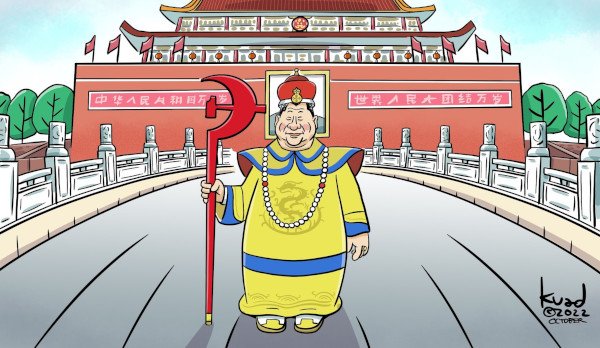
In modern-day China, independent thought is not only discouraged—it is actively silenced. Under the authoritarian rule of the Chinese Communist Party (CCP), expressing opinions that deviate from state narratives is increasingly dangerous. Over the past two years, at least a dozen high-profile cases have surfaced where scholars, economists, and public intellectuals were punished simply for questioning government policies. These crackdowns not only reflect the CCP’s iron grip on its people but should also raise serious alarms in the United States, where academic freedom and open discourse are foundational values.
One notable case involves Chinese scholar He Bin, who criticized the government’s retaliation strategy against U.S. tariffs. He argued that China’s "equal tariff" response would ultimately hurt domestic industries. Following his comments, the Chinese Academy of Social Sciences abruptly dissolved the Center for Public Policy Research, where He worked. Within days, its website was shut down, its social media accounts deleted, and researchers were reassigned or terminated. Though the center was not legally autonomous, the speed and severity of the closure demonstrate the CCP’s zero tolerance for dissent—even within state-affiliated institutions.
Another example is economist Gao Shanwen, who questioned the accuracy of China’s GDP figures, suggesting the real growth rate might be closer to 2% rather than the official 5%. Gao’s comments at a Washington, D.C. forum in December 2024 triggered backlash from Beijing. Insiders revealed that CCP General Secretary Xi Jinping personally ordered disciplinary action against him. Gao was removed from public platforms, and his remarks—though grounded in economic analysis—were treated as political subversion. When even GDP figures cannot be debated, it's clear that truth in China has become a state-controlled commodity.
Economic discourse in China has become so tightly regulated that even stock market commentary can lead to censorship. Recently, renowned economist Ren Zeping and investor Dan Bin engaged in a public debate over the A-shares market. Their online exchange touched on themes like “patriotism” and national economic strength—triggering government censors. Both were swiftly silenced, and their online posts vanished. This trend reveals a disturbing reality: even mild criticism of China’s financial policies can be construed as a threat to national unity.
These cases are not just internal Chinese affairs—they are warnings to the world, especially to the United States. The CCP’s censorship and manipulation of economic data distort global markets. When American companies or analysts rely on Chinese statistics to make business or policy decisions, they may be working with state-curated fictions.
Moreover, China is aggressively exporting its model of digital surveillance, content moderation, and narrative control. U.S. academic institutions with Chinese partnerships, think tanks, and tech platforms should be cautious. The same mechanisms used to silence He Bin or Gao Shanwen can be— and are being—replicated abroad through intimidation, cyber interference, and pressure on diaspora communities.
The U.S. must treat intellectual suppression in China not just as a human rights issue but as a national security concern. The manipulation of facts, economic data, and public discourse by a foreign authoritarian regime poses risks to American decision-making, academic integrity, and democratic resilience.
Freedom of thought is the cornerstone of a functioning democracy. China's crackdown on intellectuals is a direct attack on that principle—and one the United States cannot afford to ignore.